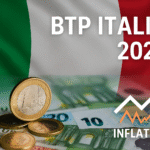
Disclaimer: This article provides general information and estimates about the cost of living in the UK for 2025 based on available data and trends. It is not professional financial, legal, or investment advice. Costs vary significantly by location, lifestyle, and individual circumstances. Always consult with a qualified financial advisor, housing expert, or relevant government body for personalized advice. Prices and policies are subject to change.
Published: June 2025
Understanding the UK’s Economic Landscape in 2025
The UK is navigating a challenging economic environment in 2025. With inflation stabilizing around 3.4% (ONS) and wage growth averaging 4.1%, many households are feeling the pressure. Key cost drivers include energy market volatility, global supply chain issues, and post-pandemic fiscal policies. This guide offers a detailed, data-backed look into everyday expenses and how to manage them.
Who is this guide for? Students, professionals, families, Gen Z and Millennials, and newcomers relocating to the UK in 2025.
Section 1: Detailed Breakdown of UK Living Costs (2025 Averages)
1.1 Housing Costs
- Rent (per month):
- London (1-bed flat, city centre): £1,950
- Manchester (1-bed flat, city centre): £1,150
- Smaller towns: £800–£950
- Shared accommodation (per room): £500–£700
- Council Tax: £115–£180/month depending on location and property band (Gov.uk)
- Mortgage (first-time buyers): Approx. £1,200/month with 20% deposit (varies by region)
1.2 Utilities
- Energy (Gas & Electricity): £150–£200/month per household (Price cap adjusted April 2025)
- Water: £40–£60/month
- Broadband & Mobile:
- Internet: £30–£50
- Mobile: £15–£30/month
1.3 Groceries & Food
- Monthly Food Budget:
- Individuals: £200–£250
- Family of 4: £600–£700
- Cost-Saving Tips:
- Shop at Lidl, Aldi, or use cashback apps like Shopmium
- Meal plan weekly
- Buy in bulk and freeze
1.4 Transport
- Public Transport:
- London (monthly travel card): £155 (Zones 1-4)
- Manchester: £70–£90/month
- Railcards (16-25, 26-30, Disabled): 1/3 off fares (National Rail)
- Car Ownership:
- Fuel: £1.57/litre (petrol), £1.65/litre (diesel)
- Insurance: £650/year (avg.)
- Road Tax & MOT: £150–£300/year
- Alternative Options: Bike hire schemes (e.g., Santander Cycles), walking, cycling
1.5 Healthcare & Education
- NHS: Free at point of use for most residents
- Prescriptions: £9.90/item (NHS)
- Dental Checkups: From £23.80 (Band 1)
- Private Insurance: £40–£90/month (optional)
- Childcare Costs:
- Nursery (full-time): £850–£1,400/month
- After-school clubs: £150–£250/month
1.6 Leisure & Miscellaneous
- Eating out: £20–£30 per meal
- Gym membership: £30–£65/month
- Streaming services: £10–£15 each (Netflix, Prime, etc.)
- Clothing: £50–£100/month avg.
Regional Cost Comparison
| Region/City | Average Monthly Rent (1-Bed) | Utilities | Public Transport | Total Monthly Estimate |
|---|---|---|---|---|
| London | £1,800 | £180 | £160 | £2,140 |
| Manchester | £950 | £150 | £90 | £1,190 |
| Birmingham | £900 | £145 | £85 | £1,130 |
| Edinburgh | £1,100 | £160 | £90 | £1,350 |
| Cardiff | £850 | £140 | £80 | £1,070 |
| Belfast | £750 | £130 | £75 | £955 |
| Hull | £600 | £125 | £65 | £790 |
Section 3: Strategies to Manage Living Costs
Budgeting & Tracking
- Use tools like Money Dashboard, YNAB, or Monzo budgeting features
- Review fixed vs. variable expenses monthly
Income Enhancement
- Remote freelance work: Writing, graphic design, tutoring
- Gig apps: Deliveroo, UberEats, TaskRabbit
Smart Spending
- Cashback & rewards credit cards
- Loyalty points (Tesco Clubcard, Nectar)
- Shop off-season for clothes/electronics
Energy Efficiency
- Draught-proofing
- Set thermostat to 19°C
- Install LED bulbs and water-efficient devices
Section 4: Government Support & Resources (2025)
- Universal Credit
- Housing Benefit
- Council Tax Reduction
- Help with Energy Bills
- Citizens Advice
- MoneyHelper UK
Conclusion
Managing the cost of living in the UK in 2025 is possible with the right planning, awareness, and access to support. Use this guide to assess your budget, compare locations, and take advantage of official resources. Whether you’re a newcomer or a long-time resident, staying informed is your best defense against economic uncertainty.
Author: Jaya
Disclaimer: Jaya is not a certified financial advisor. This article is for informational purposes only and is based on publicly available data and trends as of 2025.









